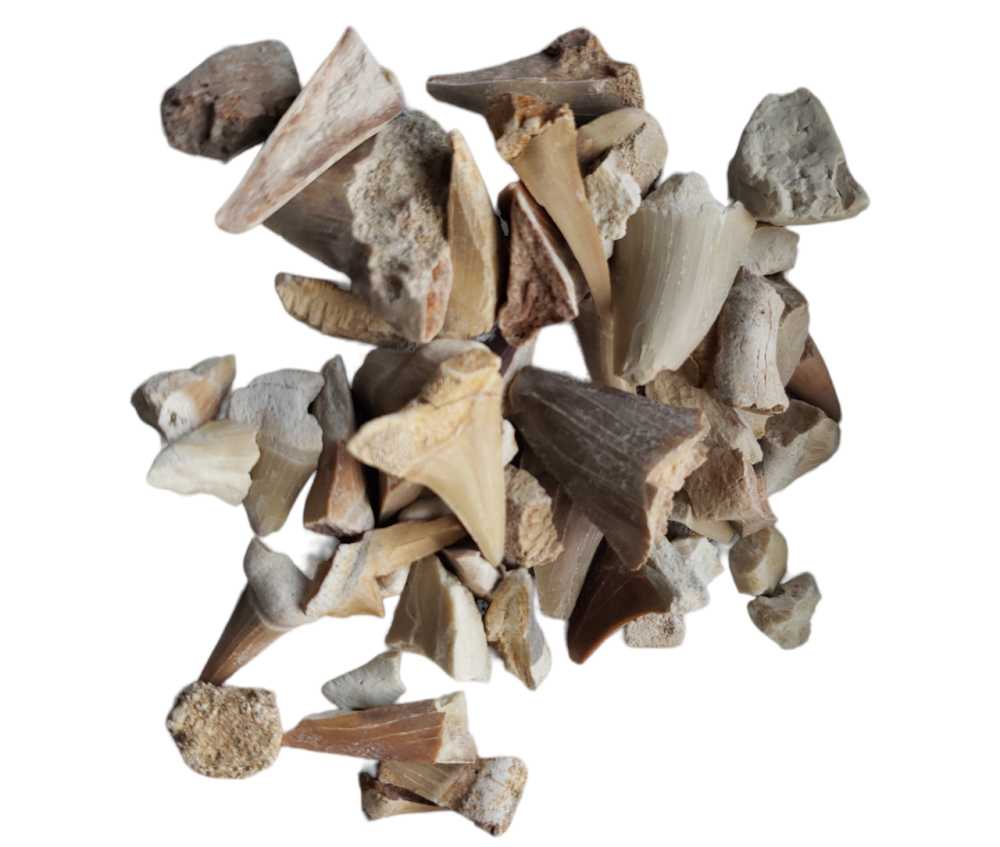We use cookies to make your experience better.
TimmersGems has a new website, existing customers also need to register again.
Shark tooth & Mosauarus remnants (100% natural fossil material) from the Sahara region around Erfoud/Morocco.
Beautiful material, "nice to fill for in a bag or box". “Kids love it!”
Availability:
In stock
SKU
120064
- Buy 5 for €13.00 each and save 19%
- Buy 20 for €11.00 each and save 31%
Shark teeth, formerly known as tongue stones or (Latin) glossopetrae, are fossilized shark teeth. The teeth are the body parts of sharks best preserved as a fossil. This is because the entire skeleton of sharks, with the exception of the teeth, consists of cartilage, which usually does not fossilize. The oldest known shark teeth belong to shark species that lived about 450 million years ago, while in the North Sea basin the most common shark teeth date from the Eocene and Oligocene and have an age between 40 million and 65 million years. Teeth from Megalodon, which lived between 1.5 and 16 million years ago, are the largest known with a maximum length of 17 cm and are highly sought after by collectors of fossil shark teeth. Smaller shark teeth are quite common in sediments of fairly deep seas. These fossils wash up on various Dutch beaches, especially in Zeeland and Zeeuws Vlaanderen, such as at Cadzand. These teeth are mainly of Tertiary age (Eocene and Oligocene). Shark teeth were among the first fossils to be correctly identified. In the 16th century, the prevailing theory was that the Earth possessed an inner power to transform objects within it into the likeness of living animals and plants. However, the Swiss naturalist Conrad Gesner (1516 - 1565) published a drawing in 1558 comparing fossil shark teeth with those of modern species. Later, the Danish researcher Nicolaus Steno (1638-1686) would demonstrate that tongue stones found in the mountains often bore traces of wear compared to teeth of a newly washed-up shark. He also discovered that the rocks in which they were found were originally soft in nature. Steno's conclusion was that tongue stones were the teeth of sharks that had died long ago.
| Dimensions | Divers |
|---|---|
| Country of Manufacture | Morocco |












